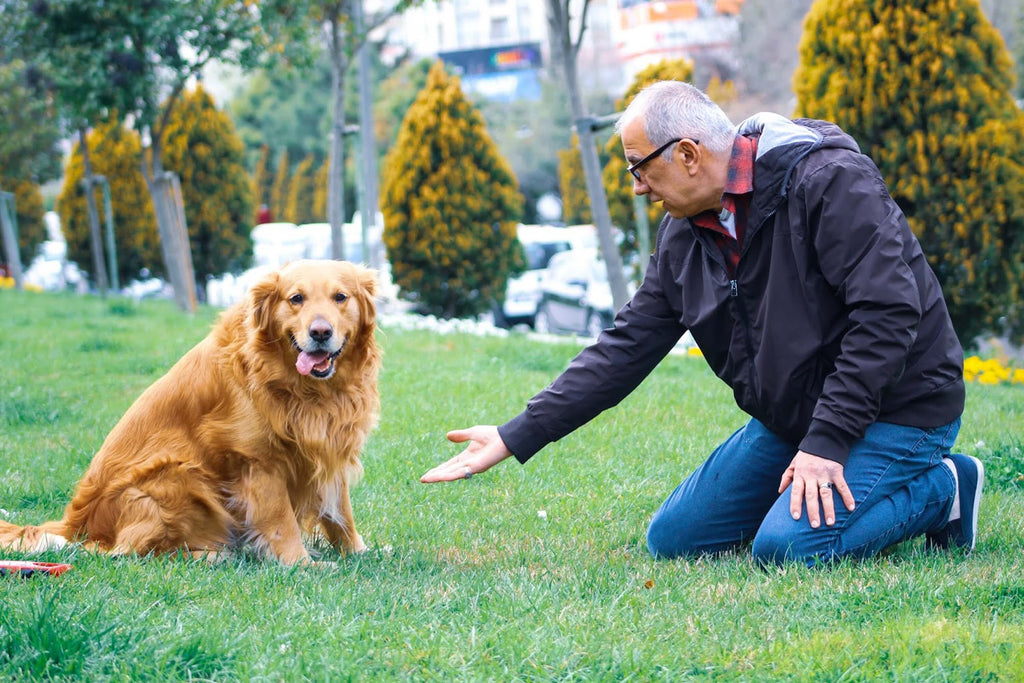
Can Dogs Eat Oranges? Are They Good For Dogs?
Your dog is your best friend, and you want them to enjoy all of your favorite treats. Oranges are delicious and nutritious for humans, so where do they fit into a dog's diet?
Can dogs eat oranges with their owners? The answer is yes, providing you're careful.
In this article, we'll address giving oranges to dogs as well as suggest some other yummy fruits your best pal can snack on.
So, Can Dogs Eat Oranges?
Yes, dogs can eat oranges if the owners uses precautions. It may surprise you to learn that the answer is actually yes, providing you're careful.
Many people erroneously believe that because oranges are acidic, this is somehow unhealthy for dogs.
When eaten in excess, oranges can be harmful to a canine's digestive system, it is like anything else: in moderation, they're actually not bad for your dog.
In this article, we'll give you some information and guidelines to ensure that you keep your pup as healthy as possible.
Health Benefits of Oranges For Dogs
There are a handful of potential health benefits of feeding your dog the occasional orange. Below are the most common benefits of oranges for dogs:
A Boost of Vitamin C
Oranges are rich in Vitamin C, which is as good for dogs as it is for people. Vitamin C is a vitamin you can't actually overdose on, and neither can your dog. It is water-soluble in both species, so if you or your pet eat too much of it, the excess will remove itself through urine. As such, there is really no limit to the amount of Vitamin C you or your dog can intake.
Most dogs don't necessarily need a Vitamin C boost, but if they exercise a lot or have high anxiety, a little bit of orange may help them. Dogs who exercise a lot or are under extreme stress may impact their liver's ability to make Vitamin C, so a little extra can help boost their immune system. This is something we also discussed in our can dogs eat bananas article.
For people, one orange provides 130% of their daily Vitamin C needs. Additionally, an orange can provide a boost to calcium, Vitamin B-6 and Vitamin A. All of these vitamins are helpful to keep a human body functioning, and can help with a canine's as well.
Potential Hazards of Oranges For Dogs
Oranges by themselves are not dangerous to dogs. However, just like anything you or your dog eats, moderation is key. Oranges do contain a lot of sugar and this can be a problem for pets who are already overweight or obese.
Oranges also contain a lot of citric acid, as they are a citrus fruit. While on its own, this isn't an issue, if your dog has too much of it, it can cause GI issues and upset. Simply put, if your dog eats too many oranges, you may find yourself cleaning up more than you bargained for. And you may be caring for a sick dog for a few days.

What Dogs Should Not Eat Oranges?
While oranges are generally safe for dogs, there are populations that should avoid the treat. Dogs who suffer from diabetes are best left to snack on vegetables and other treats that aren't so high in sugar or Vitamin C. In fact, the Vitamin C in oranges is more likely to affect their blood sugar than the sugar itself.
Dogs who have sensitive GI tracts should also probably avoid oranges, as they could end up setting off some of their GI issues.
If your dog has sensitivities, use discretion when allowing him or her an orange. If you have questions about whether or not oranges are appropriate for your best friend, speak to your vet. They are more familiar with your dog's personal history, as well as what may set off certain issues. They can give you the best advice on whether or not an orange is an appropriate snack for your pup.
How Much Orange is Too Much For Dogs?
As we mentioned above, oranges contain quite a bit of sugar. As such, moderation is key, especially for pets that are watching their weight. A small dog can have a fourth or a half of an orange a day if it is one of their favorite treats. A bigger dog can handle a whole orange.
However, you must counteract this with their other treats and food for the day. Do not give your dog an orange without taking their other food intake into account. By mindlessly giving your dog food, you may contribute to obesity, which has the same negative effects in dogs as it does in people.
Additionally, as we mentioned above, the citric acid can cause stomach upset. Even if your pet isn't in danger of becoming overweight or obese, the excess citric acid can cause him or her to become ill.
How to Give Your Dog an Orange
Now that you know you can give your dog an orange, how exactly is it done? Well, it's very similar to how you might give an orange to a small child. Before you give the orange to your dog, peel it completely. Next, pull the sections apart so you have each peeled slice separated.
Once you've done that, inspect each section for seeds. If there are any seeds, make sure you remove them before giving them to your buddy. Seeds can be a choking hazard in both small children and dogs, so always keep them in mind.
Additionally, if there are rinds attached to the orange slice, remove these before giving them to your dog. While the rinds are rich in vitamins, and some people swear by eating them, they're not good for your dog. Instead, your dog should only be given the inside of the fruit.
When feeding your dog an orange, make sure you watch him or her eat it. Do not leave your dog unattended while they're eating, as this can lead to choking or other hazards.
If you've given your dog only part of the orange, eat the rest yourself. While your dog may love the taste and may have the world's cutest begging eyes, you'll need to resist giving him or her even more. Solve that problem by polishing it off yourself so that there isn't any more to give.
What If My Dog Doesn't Like Oranges?
You've probably noticed if you've owned multiple dogs over your lifetime that dogs have different palettes. What one dog may love, another may find repulsive, just like with humans. As such, not all dogs like oranges, and that's totally okay.
If you're eating an orange and want to introduce it to your dog, follow the steps above for prepping the orange for him or her. Then, put it on the floor and let your best friend know that the orange is for them.
They may lick it, sniff it, or put it in their mouth and spit it back out. Some dogs will spit items back out and then come back to them later. If you don't mind having a mashed up orange on your floor for a half an hour or so, allow your dog to explore the taste.
If your dog really doesn't like the orange, he or she may never come back to it. That's okay, as dogs don't need to eat them in order to ensure they live a healthy life. If your dog ultimately doesn't come back to the orange slice, throw it away and move on to other foods.
Can My Dog Drink Orange Juice?
No, your dog should not drink orange juice. While it may seem like a no-brainer to allow your dog to drink orange juice, it's actually, in fact, not good for them. This is because it is a very high concentration of citric acid and sugars. That's even if you make the juice yourself.
If your dog is to eat anything to do with oranges, it should come from the source itself, and that alone.
Can Puppies Eat Oranges?
Yes, puppies can eat oranges but they should only be fed oranges in moderation. Puppies are prone to upset stomaches and require a more strict diet because they are growing so much during this stage of their life. For this reason, it is recommended that you only give orange to your puppy in moderation and only small amounts at a single time. You can always speak to your vet about how much or if you should give your puppy a small piece of orange, mandarins, clementines, or other fruit.
Can Dogs Eat Orange Peels?
No, dogs should not eat orange peels or the seeds of an orange. When you serve a piece of orange to your do it is important that you remove the peel and any large seeds as these parts of an orange are difficult for dogs to digest and have the possibility of being a choking hazard for your dog. The orange peel can also contain oils that can cause an upset stomach for your dog or puppy.
Dogs and Eating Fruit
So, can dogs eat oranges? Absolutely! Dogs can also enjoy blueberries, watermelon, strawberries and other fruits. Just make sure you always remove the seeds first.
Some fruits dogs cannot eat are grapes and cherries, as this poses a serious choking hazard.




























